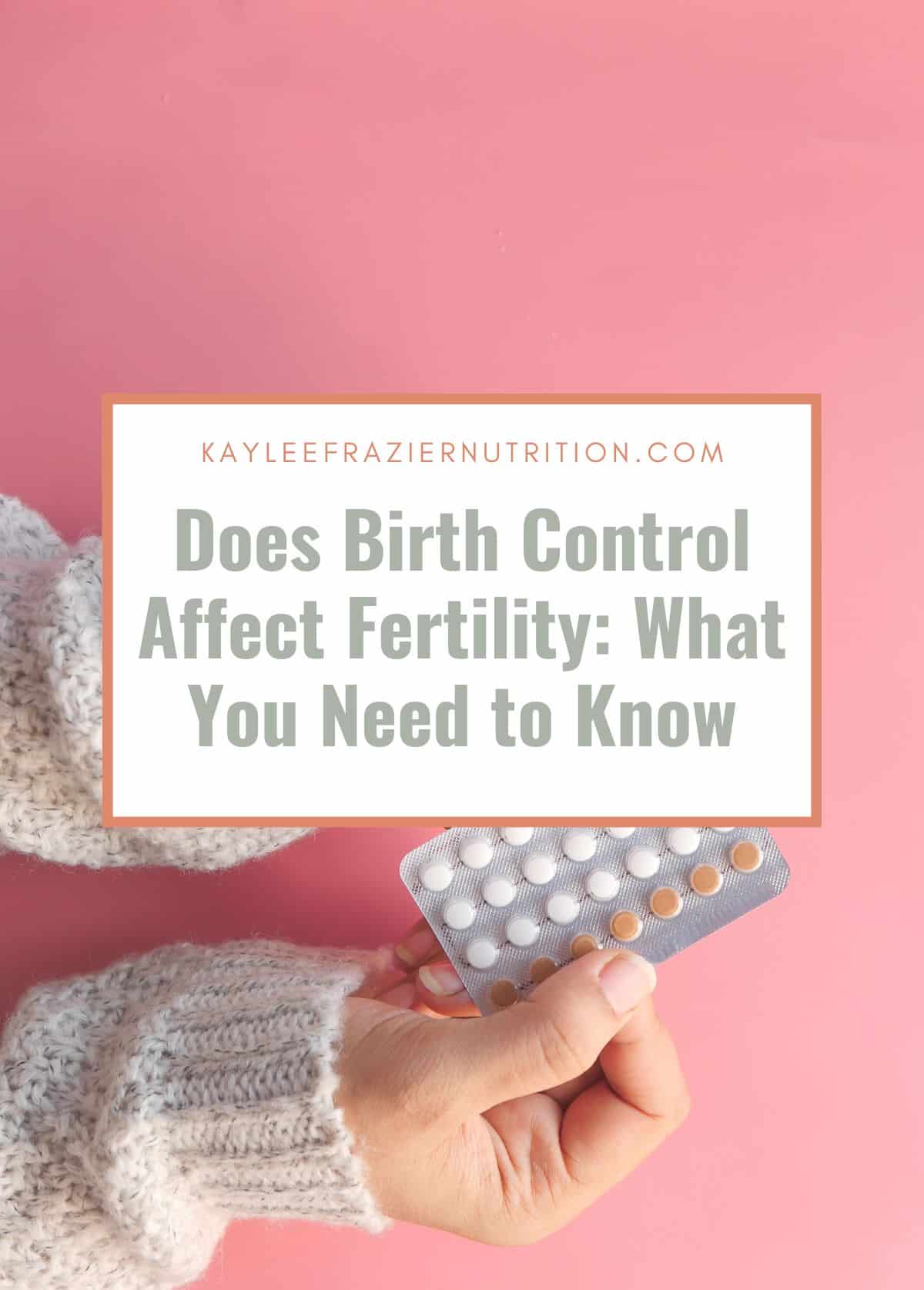Does birth control affect fertility? This is a common and important question that many women think about, especially when they are hoping to become pregnant.
The general information you’ll hear is that no, birth control does not impact your fertility. And while this is true. It also isn’t the whole story.
There is a period of subfertility that follows the use of hormonal birth control methods (1). In this article, we will cover the length typical length of subfertility following hormonal birth controls and what this means for your baby plans.

Subfertility After Birth Control
Yes, some women may get pregnant the first cycle after stopping the pill or getting their IUD out. Or even get pregnant while using hormonal contraception.
But that’s not typical. And it certainly should not be the expectation.
In fact, even in women who have worked to maximize their fertility, there is only about a 25% chance of getting pregnant each cycle with correctly timed sex. Maximizing your fertility means having healthy hormones, ovulating a healthy egg each cycle, and a partner with top notch sperm.
So chances are good that you will not get pregnant the first, second, or even 3rd cycle of trying for a pregnancy — even when fertility is optimized.
But add in a long-term history of hormonal birth control use, and the odds of conceiving in the first several months go down even more. In a study of 2841 women, researchers found there was a period of subfertility after stopping hormonal birth control. The period of subfertility depended on the type of hormonal birth control and the duration of use.
Here are the average times to pregnancy researchers found after stopping various forms of birth control (1):
- Condoms (no hormonal birth control): 4 months
- Progestin only pill: 6 months
- Combination pill (estrogen + progestin): 8 months
- IUD: 8 months
- Implant: 10 months
- Injectable contraception: 15 month
Bottom line: There is a 25% chance that a healthy woman will get pregnant in each cycle. In the months after coming off of hormonal birth control, that chance significantly declines and a woman can expect it will take longer for her full fertility to return.
Preparing for a Pregnancy when on Birth Control
There is temporary period of subfertility following hormonal birth control. But he good news, it is temporary!
However, it still is worth knowing about this period of subfertility when you are thinking about expanding a family. Because there is nothing like that longing to see the double pink lines when you decide to try for a baby. And if it isn’t happening in the timeframe you hoped or planned — well, that can be stressful.
If you are thinking about getting pregnant in the near-ish future and are still on the pill, there are a couple different ways to look at your situation:
- You may choose to stop birth control ahead of when you want to start trying for a baby and use alternative means of contraception until you are ready to start trying.
- You curb your expectations and realize it COULD take longer to get pregnant when you stop taking birth control.
This is totally a personal decision between you and your partner. But, regardless of what you decide, this information can save some stress and heartache when it you’re ready to get pregnant.
